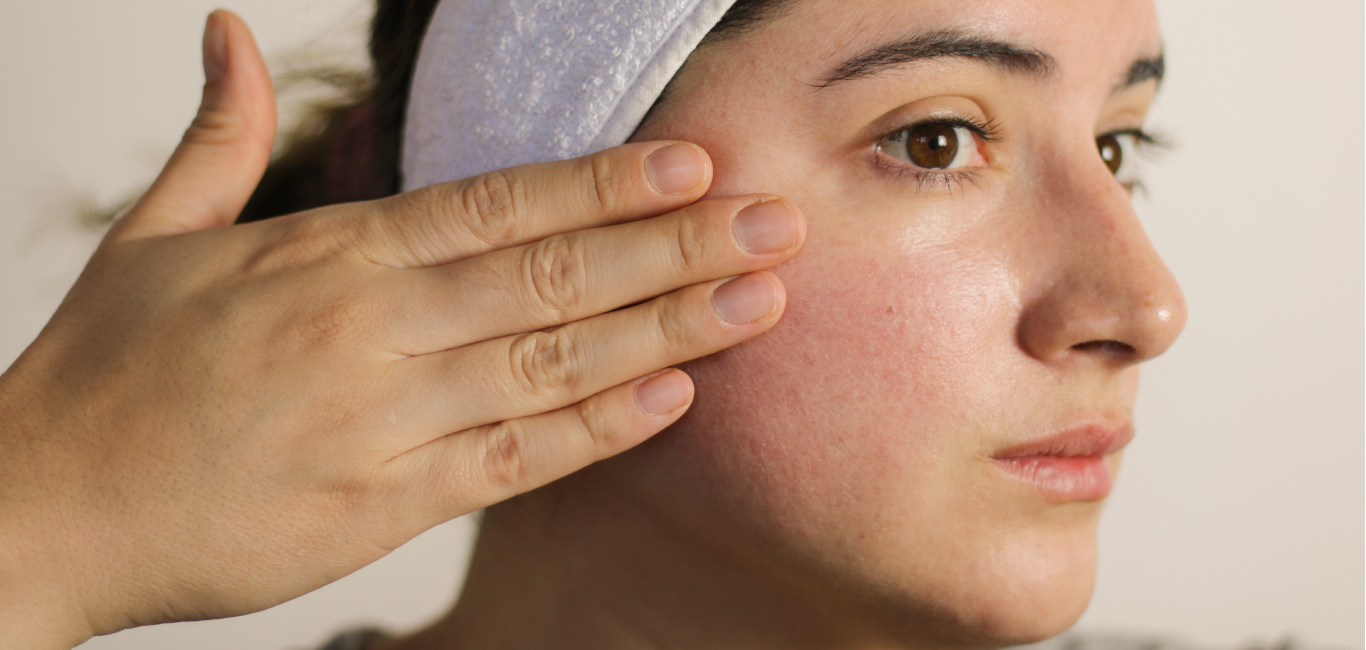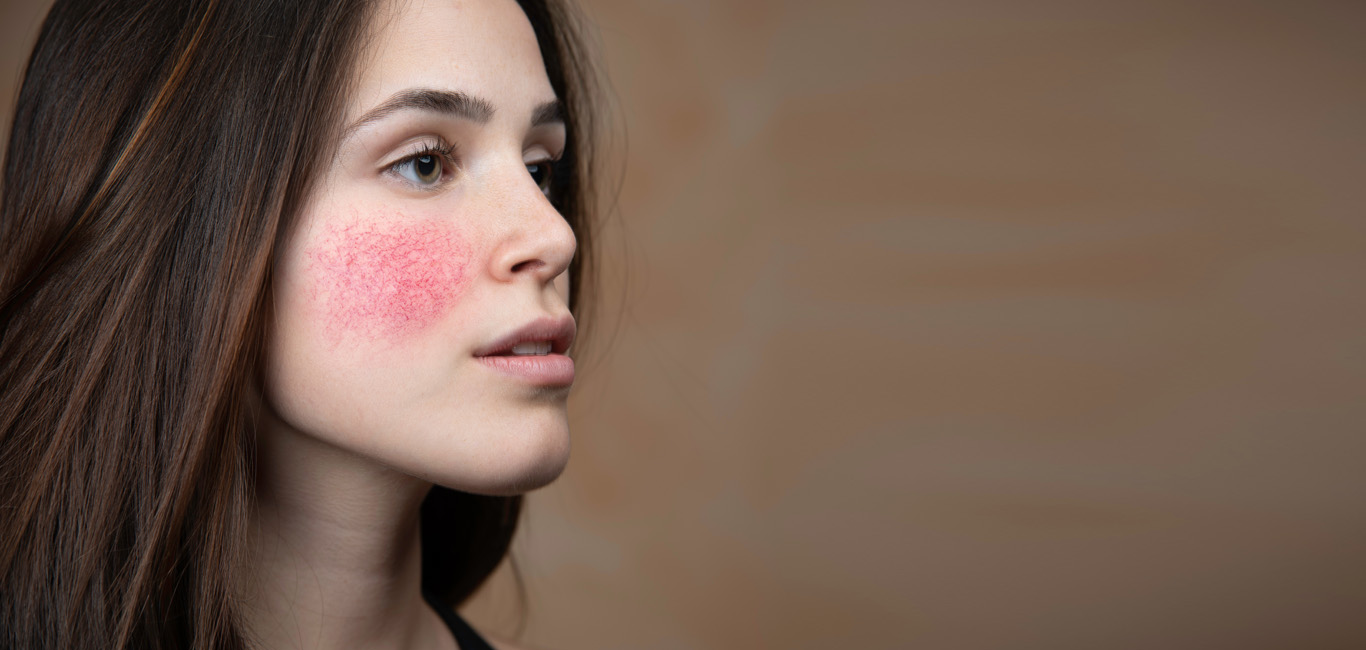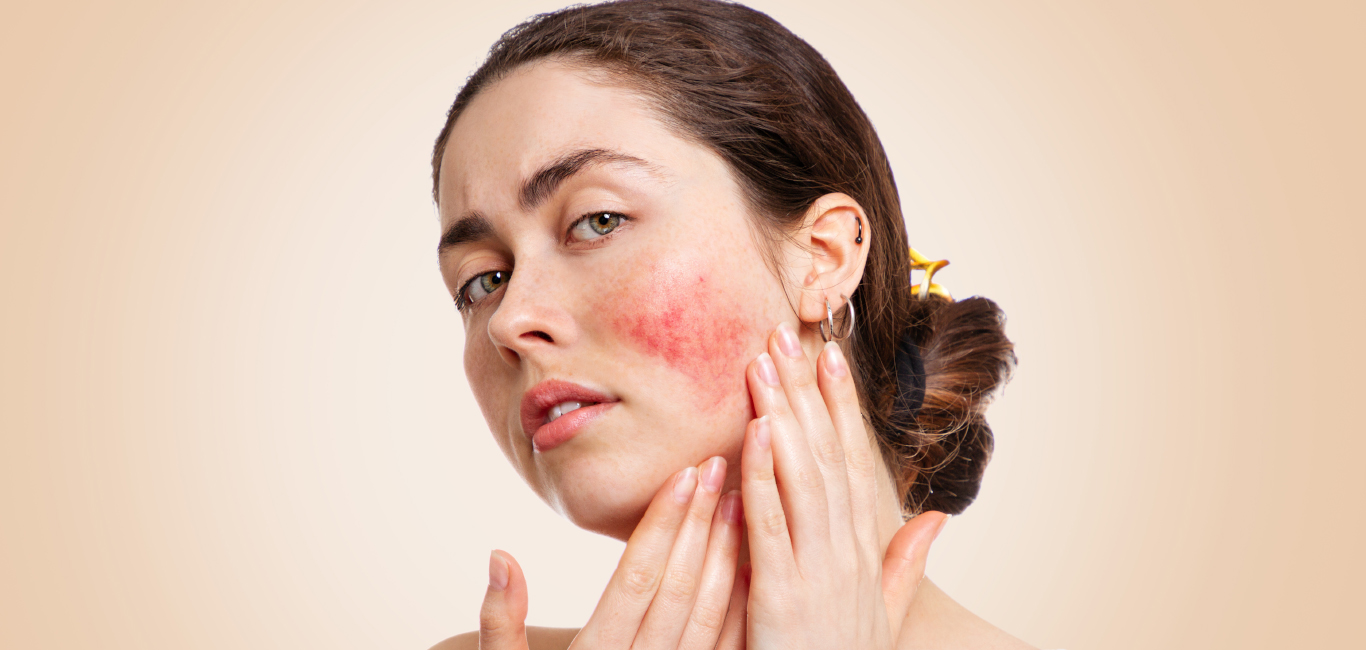
Rosacea is a skin inflammation that leads to redness or pimple-like bumps, typically appearing on the forehead, nose, and chin. These may appear as pus-filled lumps or as visible blood vessels on the cheeks and nose, resulting in redness and, on rare occasions, slight swelling.
What triggers rosacea
The factors that can cause rosacea to flare up are referred to as triggers. They can vary from one individual to another. By identifying the triggers and tweaking the skin care routine, one can better manage the condition.
Dr Namrata Singh, dermatologist and founder of Aiconic Skin Clinic, Bengaluru, says that rosacea makes the skin highly sensitive, and as a result, various factors can trigger rosacea flare-ups. The main triggers of rosacea include genetic and environmental triggers. It can be triggered by several other factors too. “These include the overgrowth of a common skin microbe known as Demodex mites, excessive alcohol consumption, vigorous exercise, and the use of cosmetics containing ingredients such as formaldehyde,” she says. Besides, obesity, a sedentary lifestyle, and symptoms resembling metabolic syndrome have been known to contribute to rosacea development in some individuals. Dr Seema Oberoi Lall, consultant, dermatology, CK Birla Hospital, Gurugram and Dr Singh outline the various factors that can trigger rosacea.
Environmental triggers
Sun exposure: UV radiation from the sun can increase redness of the skin. They cause blood vessels near the skin’s surface to expand, worsening the appearance of visible blood vessels on the face, a common symptom of rosacea. Sunscreen and protective clothing are essential to shield the skin from these harmful rays.
Extreme temperatures: Extreme temperatures can trigger rosacea flare-ups. In summers, the heat dilates blood vessels, leading to redness and flushing. Cold weather can cause vasoconstriction, where blood vessels narrow, potentially reducing blood flow and causing the skin to become dry and more susceptible to irritation.
Wind: Constant exposure to wind can strip the skin of its natural oils, leading to dryness and irritation. It may also carry allergens and irritants that can worsen rosacea symptoms. Protective clothing like scarves or masks can help protect the face from wind.
Humidity: Humid conditions may cause excessive sweating, leading to increased redness and discomfort. Moreover, it can combine with sweat and skincare products, potentially clogging pores, and exacerbating rosacea. Proper skincare routines and staying hydrated can help manage rosacea in humid environments.
Dietary triggers
Spicy food: It can dilate the blood vessels leading to increased redness on the face. This reaction can be particularly uncomfortable for those with rosacea. Thus, one should limit or avoid spicy food in one’s diet.
Alcohol: Alcohol consumption can result in increased facial redness, flushing, and a sensation of heat. People with rosacea should moderate their alcohol intake or choose beverages that are less likely to trigger symptoms.
Hot beverages: Coffee and tea, particularly when served hot, can stimulate blood vessels, and potentially trigger rosacea symptoms. The high temperature of the beverage can cause a temporary increase in facial redness and flushing. Opting for milder temperatures or allowing hot beverages to cool down before consumption may help minimise this effect.
Individual responses to dietary triggers can vary, hence, it is essential for people with rosacea to pay attention to their body’s reactions to specific food and drinks. Keeping a food diary can be helpful in identifying and avoiding triggers. Consulting with a dermatologist for personalised dietary recommendations can also be beneficial in managing rosacea effectively.
Emotional Triggers
Dr Singh says that stress is a well-known trigger for rosacea flare-ups. When one is stressed, one’s body releases stress hormones, which can affect blood vessels and the skin. “Stress leads to an increase in adrenaline, which leads to blood vessel dilation, which triggers rosacea,” she adds.
How to calm them?
Dr Lall says that preventing rosacea flare-ups involves recognising the condition, prioritising sun protection, and guarding against various sources of light that can trigger symptoms. These proactive steps include consistently applying broad-spectrum sunscreen, even indoors to shield against bright screen and window light, as well as infrared light from cooking. “Additionally, it is essential to identify and avoid personal triggers, such as hot beverages, by allowing them to cool before consumption and opting for milder, less spicy foods in your diet,” says Dr Lall.
Skincare tips to manage rosacea
Proper skincare is crucial for individuals with rosacea to maintain healthy and calm skin. Experts suggest the following skincare tips:
Gentle cleansers: Use mild, fragrance-free cleansers that do not strip the skin of its natural oils. Harsh or abrasive cleansers can exacerbate rosacea symptoms.
Moisturisers: Use gentle, hydrating moisturisers to prevent dryness and irritation.
Sunscreen: Apply sunscreen with a broad-spectrum SPF of at least 30. One should apply it 20 to 30 minutes before stepping out.
Consulting a dermatologist for personalised rosacea management is important, says Dr Lall. Dermatologists can assess the severity of rosacea, identify triggers, and recommend appropriate treatments. “A dermatologist can also provide guidance on specific skincare products and prescribe medications tailored to an individual’s needs as it is a personalised journey, and what works best may vary from person to person.,” she says.
















